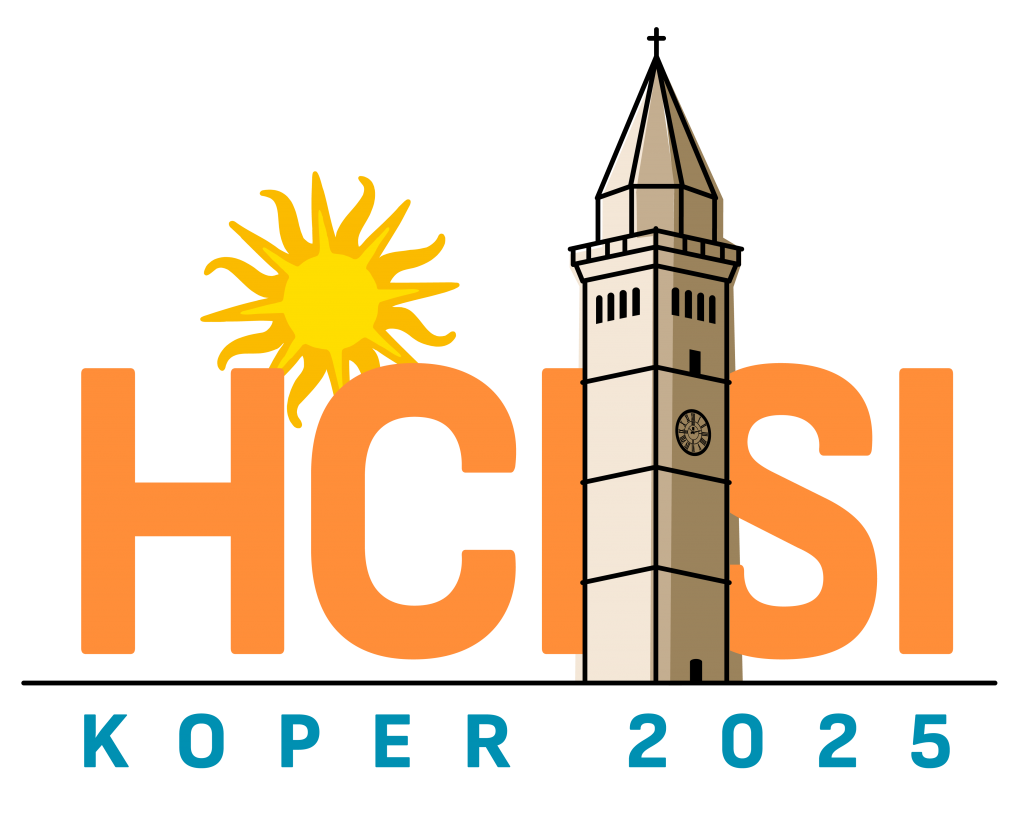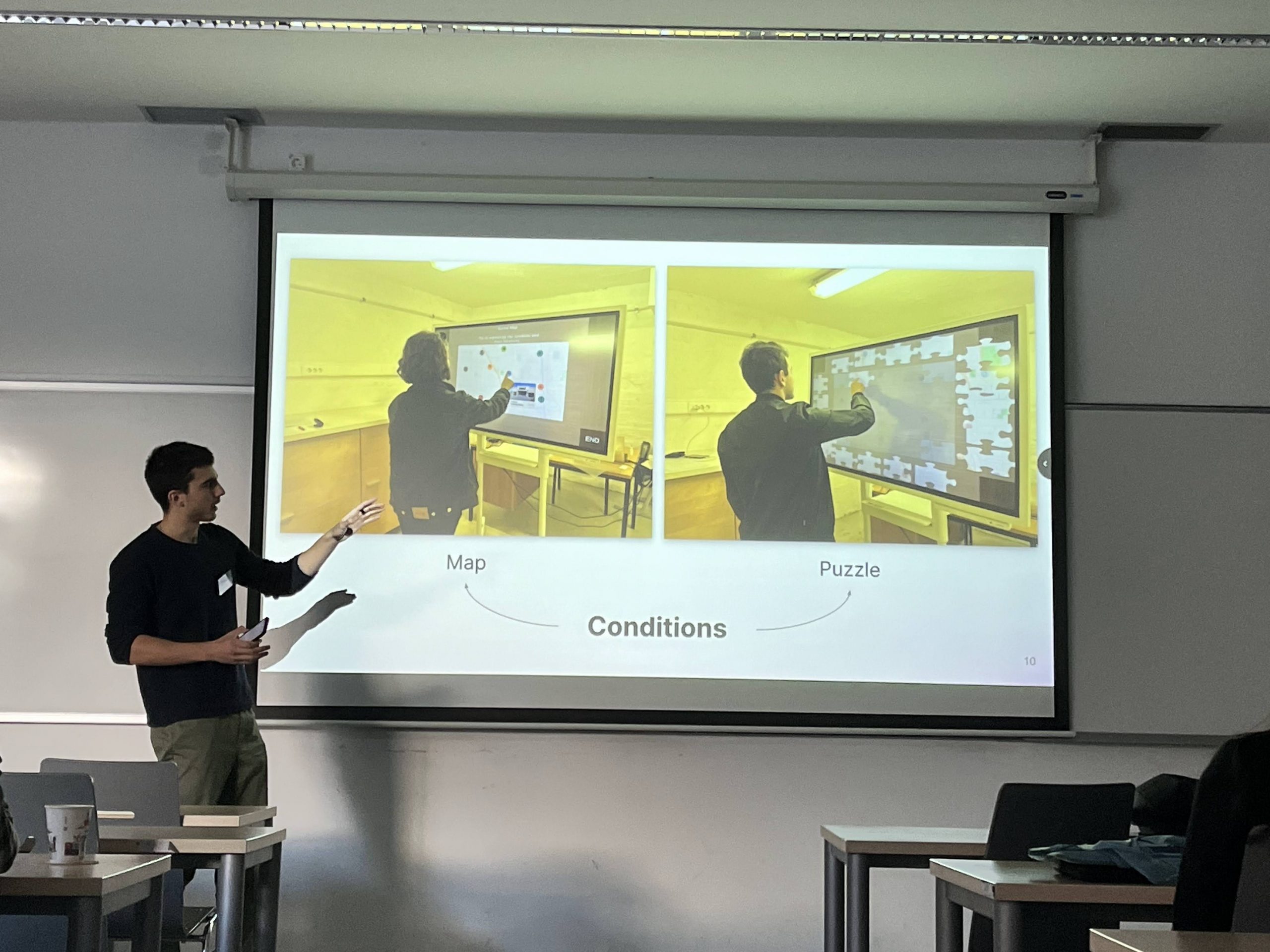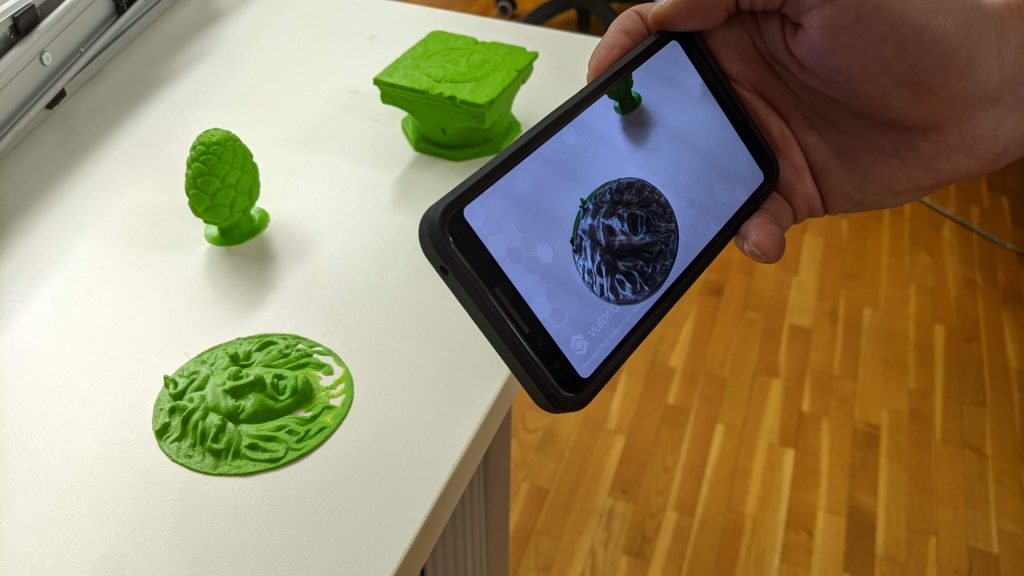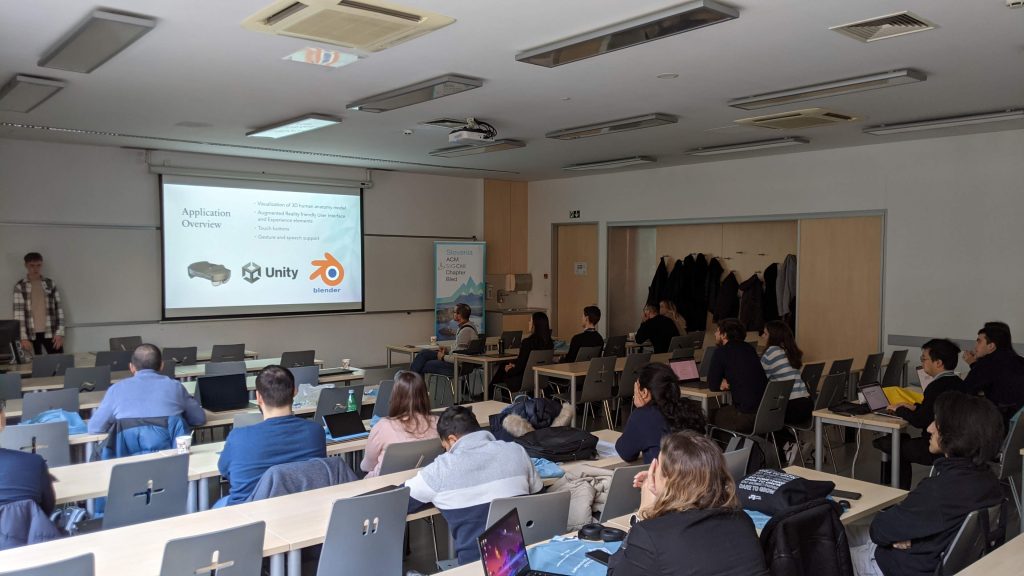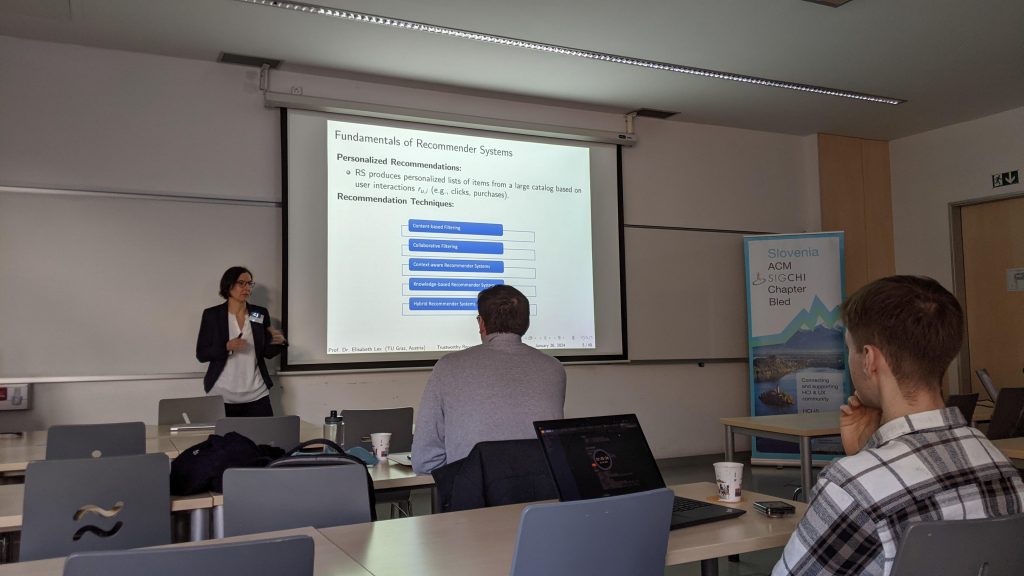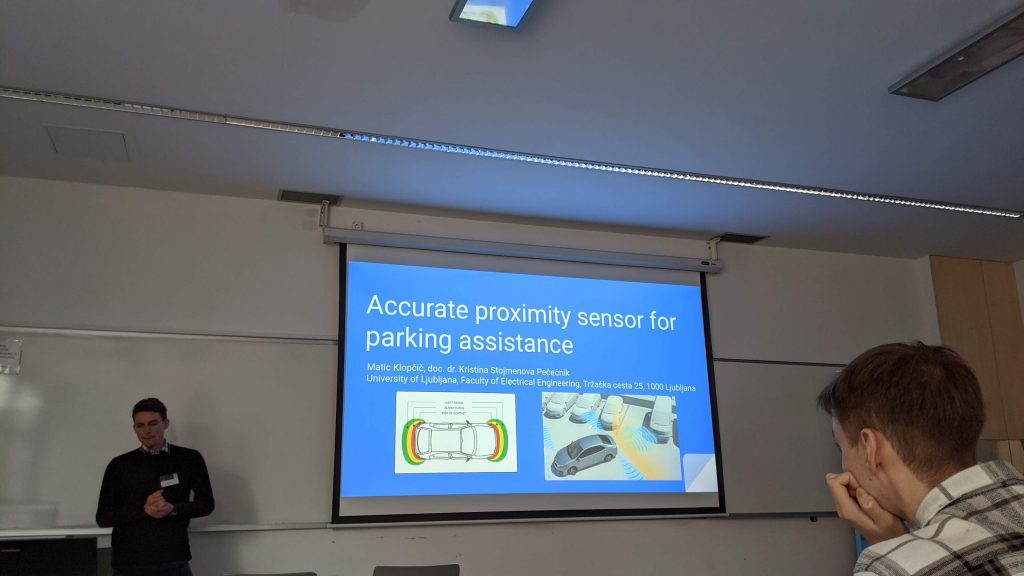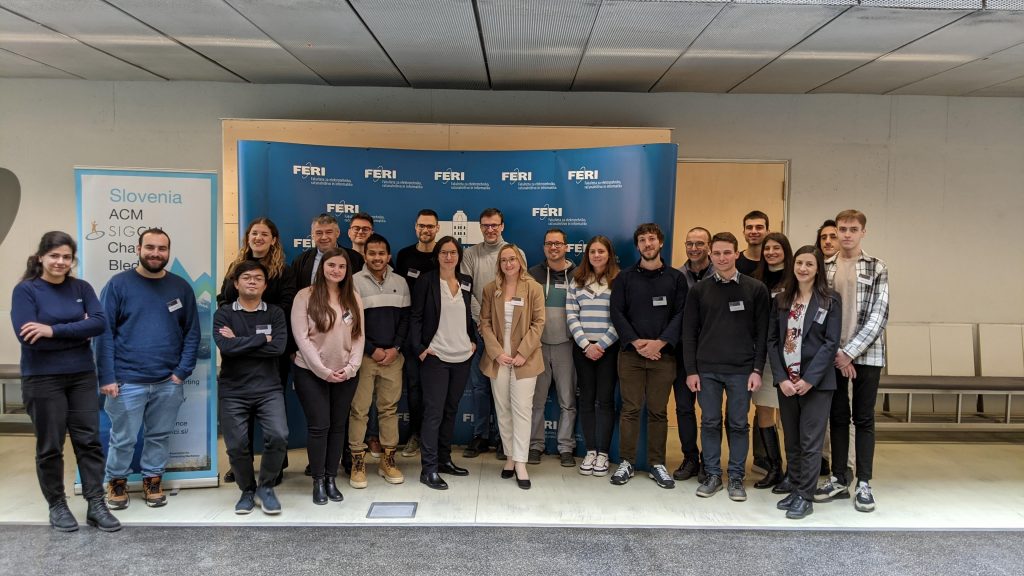The 10th Human-Computer Interaction Slovenia 2025 conference, will be taking place on Monday, the 13th of October 2025, at FAMNIT, University of Primorska in Koper, Slovenia.
The conference programme is as follows:
| From | To | Description |
|---|---|---|
| 8:30 | 9:00 | On-event registration & Coffee |
| 9:00 | 10:00 | SESSION 1 (10 min presentations) |
| Welcome speech | ||
| Human-Computer Interaction in Slovenia: A Retrospective and Trend Analysis of Local Research (C. Bohak) | ||
| Razvoj didaktične mobilne igre za vzpodbujanje kreativnosti (E. Hodžić and M. Pesek) | ||
| Razvoj in uporabniška študija mobilne aplikacije za vadbo poliritmov (J. Kužner, M. Pesek and M. Marolt) | ||
| Designing the Ideal Political Identity Questionnaire Using Machine Learning and Ideology Scales (Ana Nikolić, Uroš Sergaš and Marko Tkalčič) | ||
| Real-Time Gesture Transmission with a Robotic Hand: Embodied Signals for Non-Verbal Remote Communication (L. Pajnič, M. Kljun, M. Weerasinghe and K. Čopič Pucihar) | ||
| 10:00 | 10:30 | Coffee Break + Demos |
| 10:30 | 11:20 | KEYNOTE by Jürgen Ziegler |
| Bridging the Gulf of Uncertainty in Intelligent Interactive Systems | ||
| 11:20 | 11:40 | Coffee Break + Demos |
| 11:40 | 12:40 | SESSION 2 (10 min presentations) |
| Exploring the Effects of Multimodal User Interfaces in Autonomous Vehicles (K. Stojmenova Pečečnik, T. Gruden, G. Jakus, S. Tomažič and J. Sodnik) | ||
| Integration of Hybrid Animation in a 360-degree Environment (A. Ilievski, S. Žilič Fišer and S. Kolmanič) | ||
| Translation of Situation Awareness Rating Technique Questionnaire in Slovenian (K. Stojmenova Pečečnik and G. Jakus) | ||
| Web implementation of 3-way chess (J. Koprivec, M. Marolt and C. Bohak) | ||
| Visualization of 3D Ultrasound Uterine Data in Virtual Reality (I. Gavrilović and C. Bohak) | ||
| Optimizing Product Catalogue Design: A Comparative Study of Traditional Photography and 3D Modeling (S. Kolmanič, J. Hrašar, Š. Horvat and D. Mongus) | ||
| 12:40 | 14:40 | Lunch Break |
| 14:40 | 15:40 | SESSION 3 (10 min presentations) |
| Comparison of Unity and FMOD Libraries for Spatial Audio Localization in Virtual Reality (G. Leskovec, E. Gaberšček and J. Sodnik) | ||
| Učenje jazz glasbe v navidezni resničnosti (H. Jeretina and M. Pesek) | ||
| Transparent persona generation with LLMs: An evidence-based and traceable method for user-centred design (B. Blažica, M. Topole and M. Debeljak) | ||
| Inferring a Mobile User’s Valence and Arousal through On-Screen Text Analysis (E. Džubur and V. Pejović) | ||
| NERVIS: An Interactive System for Graph-Based Exploration and Editing of Named Entities (U. Šmajdek and C. Bohak) | ||
| Implementation of the Science on a Sphere Visualization System as a Web Application (J. Anžič and C. Bohak) | ||
| 15:40 | Closing Remarks |

 Jürgen is a senior full professor in the Faculty of Computer Science at the
Jürgen is a senior full professor in the Faculty of Computer Science at the 